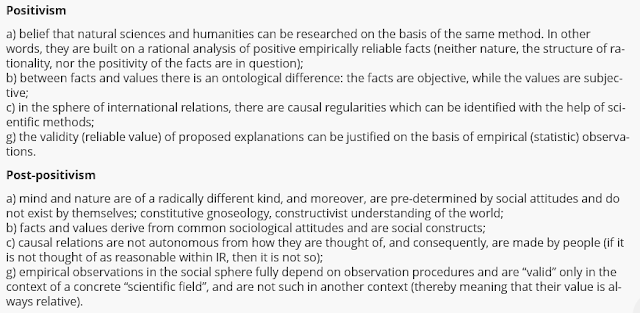Positivism versus post-positivism in international relations

There are many different theories of international relations (IR). These theories help us as students, analysts or academics to evaluate or predict the behaviour of states and non-state actors. It is important to understand the theories if you are interested in IR as a field of study. According to Sterling-Folker (2006: p.5) as cited by Griffiths (2007), "IR theory is a set of template or prepackaged analytical structures for the multiple ways in which an event or activity...might be categorized, explained or understood. These templates may be laid over the details of the event itself, allowing one to organize the details in such a way that the larger pattern is revealed and recognize within and through the event." The theories are further divided into 2 philosophical movements; positivism and post-positivism. In this article, I will begin by explaining both movements based on the required readings for the unit IR202 Theories of International Relations. Then I will try...